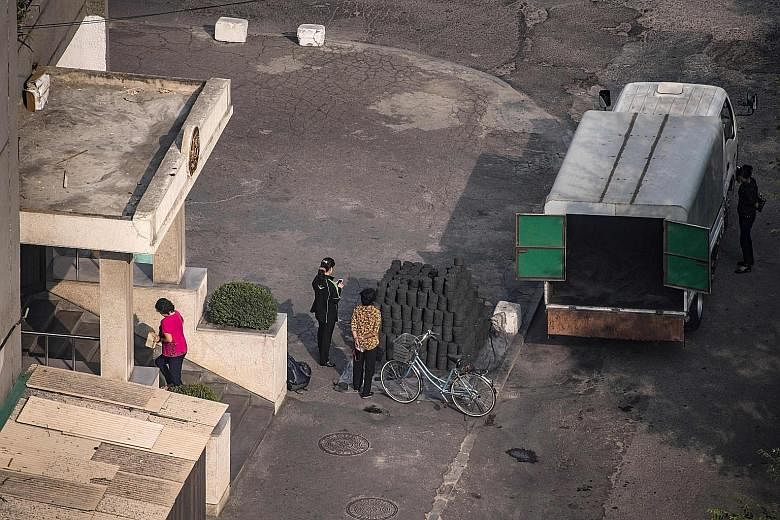SEOUL • North Korea has suspended exports of rare minerals to China in a tit-for-tat move against Beijing's ban on coal imports from its neighbour, reported broadcaster Radio Free Asia (RFA).
A source based in North Korea's North Hamgyong province told RFA's Korean Service the suspension would be only temporary as Pyongyang has no other resources to export, and few trade partners.
"Iron ore from Musan mine and magnesia clinker from Dancheon are still exported to China, but the export of molybdenum from Musan county and cobalt minerals from Hoeryeong has been completely halted," the source said, speaking on condition of anonymity.
Two North Korean provinces which border China, North Hamgyong and Yanggang, have been affected by the suspension, reported RFA. Mine workers who have been left without jobs are "bewildered", the source said, adding that the suspension of the export of rare minerals took effect around Feb 20, two days after Beijing imposed a total ban on coal shipments from the North until the end of this year.
China says the coal ban was in line with United Nations sanctions placed on North Korea late last year over the latter's missile and nuclear programmes.
Coal exports to China contribute as much as 40 per cent of North Korea's foreign currency.
In an unusual public attack following China's coal decision, North Korean state media last week denounced Beijing for "dancing to the tune of the US".
In a Reuters interview, US President Donald Trump said he welcomed China's ban, but Beijing could solve the challenge posed by the North "very easily if they want to", turning up pressure on China to do more. China later dismissed the renewed pressure from Mr Trump, saying the crux of the matter was a dispute between Washington and Pyongyang.
China is the North's sole major ally and by far its largest trading partner, with coal the biggest component of its purchases according to figures from Chinese Customs.
Beijing last year imported more than 22 million tonnes worth nearly US$1.2 billion (S$1.7 billion).
It was not immediately clear how much China's ban on coal imports would affect North Korea's ability to look after its population - Beijing may have already paid Pyongyang for the coal it imported in the first 50 days of this year, reported The New York Times.
A geological study in 2014 estimated North Korea could hold more than twice the known global deposits of rare earths - minerals used in electronics such as smartphones and high-definition television sets.
Its largely untapped stockpiles of valuable elements are desired by China and other tech-consuming nations, reported CNBC.
Experts have said that because of the North's diplomatic isolation, the Chinese are effectively "monopsonistic purchasers" of the minerals.

